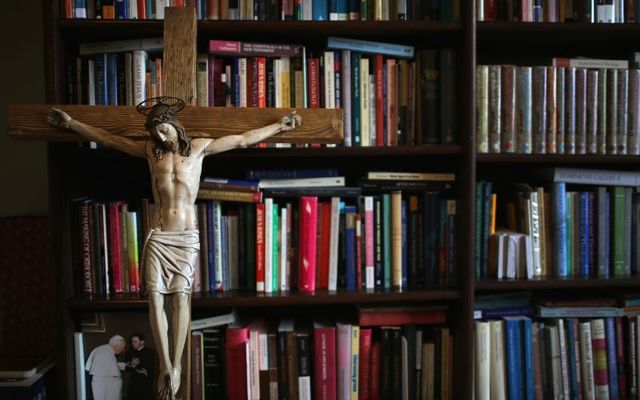My relationship with the Catholic Church is, um, complicated.
Consider a report in The New York Times last week: “An Oklahoma state education board is weighing whether to approve the nation’s first religious charter school…potentially setting up a high-profile constitutional battle over whether taxpayer money can be used to directly fund religious schools.”
The Times added that “the proposed school…would be run by the Roman Catholic Archdiocese of Oklahoma City and the Diocese of Tulsa, would be the first to operate as an explicitly religious school, with religious instruction.”
So, yes, there are a whole bunch of questions about whether or not, or how, taxpayers should be supporting religious institutions.
But that’s not the complicated part for me.
This is: The president of Americans United for Separation of Church and State told the Times she’s worried that the Oklahoma case “clears a path for the government to favor the majority religion.”
And I’m thinking, is she calling Catholicism a “majority religion?” In America? That’s absurd.
Or does she mean Christianity? As, like, one big religion? Also quite absurd.
The point is, for all of my wrath and rage at the many sins of the church, I also cling to it as still some kind of outsider institution in the US.
I told you. It’s complicated.
But it also means I don’t bash the church lightly. Like a lot of people.
And yet, there is a big question to be asked about taxpayers and Catholic schools, and it has nothing to do with the Constitution.
Should the US government, in this day and age, be doing business with an organization with a gruesome history of protecting predators?
I know. The church has been trying for a decade or so to atone for its sexual abuse cover-ups.
Doesn’t Boston Irish American Cardinal Sean O’Malley lead an organization called the Pontifical Commission for the Protection of Minors?
In a better world, of course, you wouldn’t need a commission for such things.
Also, if such a commission were really doing its job, a founding member – a German Jesuit named Father Hans Zollner – would not up and quit after nearly 10 years of work, saying substantive progress had become “impossible...in the areas of responsibility, compliance, accountability, and transparency.”
You know, the little things.
Zollner’s exit comes several years after Irish activist and abuse survivor Marie Collins also quit this commission, citing similar frustrations.
These are not the kinds of things victims should still be reading about all these years after the worst horrors of clerical sexual abuse came to light. But the revelations keep on coming.
Just this month, Maryland’s attorney general released a report alleging that over 150 people affiliated with the church abused 600 children from “the 1940s through 2002,” as CNN put it.
But wait. There’s more!
Brian Fraga of National Catholic Reporter wrote a fascinating story this week about a movement – led by priests! – to end legal protections affiliated with crimes and the sacrament of penance.
“Fr. Jim Connell of the Archdiocese of Milwaukee has been urging state legislators around the country to repeal clergy-penitent privilege in mandatory reporting laws that exempt Catholic priests from notifying authorities of any sexual abuse they hear about in the confessional,” Fraga writes.
"Protecting the child is more important than worrying about whether the government is going to tell us how to practice our religion," adds Connell, a retired priest and canon lawyer who served as the Milwaukee Archdiocese's vice chancellor in the 1990s and 2000s.
How exactly is it that Bud Light and Disney and so many other companies face constant scrutiny? Even though neither government money nor pedophiles are involved in their bland, corporate operations.
And yet when it comes to taxpayers dumping millions into Vatican coffers, the main concerns we have are…constitutional?
Even I must confess: This does not seem all that complicated.
*This column first appeared in the April 26 edition of the weekly Irish Voice newspaper, sister publication to IrishCentral.




Comments